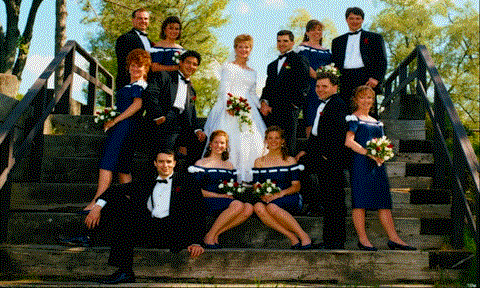The position that my husband has so long
occupied in the cause and work of God has been one of peculiar
trials. His adaptation to business and his clear foresight have
led his ministering brethren to drop responsibilities upon him
which they should have borne themselves. This has made his burdens
very great. And while his brethren have not taken their share
of the burdens, they have lost a valuable experience which it
was their privilege to obtain had they exercised their minds
in the direction of caretaking, of seeing
and feeling what must be done for the upbuilding of the cause.
Great trials have been brought upon my
husband by his ministering brethren's not standing by him when
he most needed their help. The disappointment he has repeatedly
felt when those whom he depended upon failed him in times of
greatest need has nearly destroyed his power to hope and believe
in the constancy of his ministering brethren. His spirits have
been so wounded that he has felt justified in being grieved,
and he has allowed his mind to dwell upon discouragements. This
channel of darkness God would have him close, for he is in danger
of making shipwreck here. When his mind becomes depressed, it
is natural for him to bring up the past and dwell upon his past
sufferings; and unreconciliation takes hold upon his spirits,
that God has suffered him to be so beset with trials unnecessarily
brought upon him.
The Spirit of God has been grieved because
he has not fully committed his ways to God and trusted himself
entirely in His hands, not allowing his mind to run in the channel
of doubt and unbelief in regard to the integrity of his brethren.
In talking doubts and discouragements he has not remedied the
evil, but has weakened his own powers and given Satan advantage
to annoy and distress him. He has erred in talking out his discouragements
and dwelling upon the unpleasant features of his experience.
In thus talking he scatters darkness but not light. He has at
times laid a weight of discouragement upon his brethren, which
did not bring to him the least help, but only weakened their
hands. He should make it a rule not to talk unbelief or discouragement,
or dwell upon his grievances. His brethren generally have loved
and pitied him, and have excused this in him, knowing the pressure
of care upon him, and his devotion to the cause of God.
My husband has labored untiringly to bring
the publishing interest up to its present state of prosperity.
I saw that he had had more sympathy and love from his brethren
than he has thought he had. They eagerly search the paper to
find something from his pen. If there is a tone of cheerfulness
in his writings, if he speaks encouragingly,
their hearts are lightened, and some even weep with tender feelings
of joy. But if gloom and sadness are expressed, the countenances
of his brethren and sisters, as they read, grow sad, and the
spirit which characterizes his writings is reflected upon them.

The Lord is seeking to teach my husband
to have a spirit of forgiveness, and forgetfulness of the dark
passages in his experience. The remembrance of the unpleasant
past only saddens the present, and he lives over again the unpleasant
portion of his life's history. In so doing he is clinging to
the darkness and is pressing the thorn deeper into his spirit.
This is my husband's infirmity, and it is displeasing to God.
This brings darkness and not light. He may feel apparent relief
for the time in expressing his feelings; but it only makes more
acute the sense of how great his sufferings and trials have been,
until the whole becomes magnified in his imagination, and the
errors of his brethren, who have aided in bringing these trials
upon him, look so grievous that their wrongs seem to him past
endurance.
My husband has cherished this darkness
so long by living over the unhappy past that he has but little
power to control his mind when dwelling upon these things. Circumstances
and events which once he would not have minded, magnify before
him into grievous wrongs on the part of his brethren. He has
become so sensitive to the wrongs under which he has suffered
that it is necessary that he should be as little as possible
in the vicinity of Battle Creek, where many of the unpleasant
circumstances occurred. God will heal his wounded spirit, if
he will let Him. But in doing this, he will have to bury the
past. He should not talk of it, or write of it.
It is positively displeasing to God for
my husband to recount his difficulties and his peculiar grievances
of the past. If he had looked upon these things in the light
that they were not done to him, but to the Lord, whose instrument
he is, then he would have received a great reward. But he has
taken the murmurings of his brethren as though done to himself
and has felt called upon to make all understand the wrong and
wickedness of thus complaining
of him when he did not deserve their censure and abuse.
Had my husband felt that he could leave
this matter all with the Lord, and that their murmurings and
their neglect were against the Master instead of the servant
in the Master's service, he would not have felt so aggrieved,
and it would not have hurt him. He should have left it with the
Lord, whose servant he is, to fight his battles for him and vindicate
his cause. Then he would have finally received a precious reward
for all his sufferings for Christ's sake.
I saw that my husband should not dwell upon the painful facts in our experience. Neither should he write his grievances, but keep as far from them as he can. The Lord will heal the wounds of the past if he will turn his attention away from them. "For our light affliction, which is but for a moment, worketh for us a far more exceeding and eternal weight of glory; while we look not at the things which are seen, but at the things which are not seen: for the things which are seen are temporal; but the things which are not seen are eternal." When confessions are made by his brethren who have been wrong, he should accept the confessions and generously, nobly, seek to encourage those who have been deceived by the enemy. He should cultivate a forgiving spirit and should not dwell upon the mistakes and errors of others, for in so doing he not only weakens his own soul, but tortures the minds of his brethren who have erred, when they may have done all that they can do by confession to correct their past errors. If God sees it necessary that any portion of their past course should be presented before them, that they may understand how to shun errors in future, He will do this work; but my husband should not trust himself to do it, for it awakens past scenes of suffering that the Lord would have him forget.
